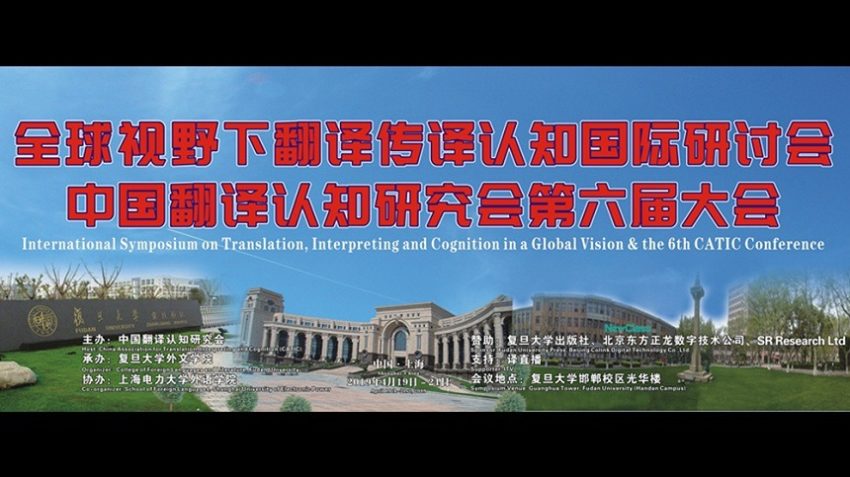The advancement of AI-Assisted Translation: Is it overtaking human translation? – SHI Jie
人工智能时代口译技术应用研究
王华树 | 国内首部聚焦口译技术应用和教学的著作
新书推荐
口笔译教育与评价国际论坛 二号公告
在厦门大学百年校庆之际,邀您齐聚厦门、共襄盛举
论坛推荐

全球视野下翻译传译认知国际研讨会暨
中国翻译认知研究会第六届大会
☞点击回看大会全程直播盛况
主持人:藏志勇教授
评议专家:张新玲教授
Professor SHI Jie
SHI Jie, Professor of English at the National University of Electro-Communications (UEC), Tokyo, Japan, has been a practitioner and researcher in TESOL, Sociolinguistics, ESP, Translation Studies and Teacher Training for over three decades primarily in China, Japan, Singapore and the US. She is also heavily involved in Curriculum Development and program management at both undergraduate and graduate school levels at UEC Tokyo, Tokyo Institute of Technology and the School of Engineering Science (SES) of Wuhan National Center for Optoelectronics Huazhong University of Science and Technology), China, primarily. She is an active member at several international associations in the above-mentioned areas of research including being the Chair for ESP Kanto of JACET, Vice-President of Asia ESP, an executive board member of CATIC and China ESP. She also heads the Research Station for Innovative and Global Tertiary English Education (IGTEE) and the Technical English program of UEC Tokyo.
The advancement of AI-Assisted Translation: Is it overtaking human translation?
The research on human translation contributes greatly to the bridging of human societies and the understanding of humanity. In contrast to long and extensive exploration of human translation, the contemporary advancement of Information Technology (IT) at an exponentially speed seems ephemeral. However, the seemingly unrelated Machine Translation (MT) to human translation, is captivating the attention not only researchers and engineers but also public users. The inevitable merging of human mind and mechanical brain is being unveiled, owing to the development of MT. MT is essentially the subject of research for IT researchers and engineers/programmers in the field of Natural Language Processing (NLP) which deals with human languages for the purpose of enabling machines to handle (inclusive of both decode and encode) human languages. Computer software assisting human translation are becoming accessible to professional as well as public users. The popularity of translation software, e.g. Computer-Assisted Translation (CAT) and online translation applications, is mainly brought by its increasing accuracy and certain functions that match or surpass human capacity. This talk intends to display the mechanisms or the engine of MT, especially noting Artificial Intelligence (AI), machine learning and their functions in translation software using codes from written, spoken and visual sources. Any translation software/application utilizing AI technologies is referred to as AI-Assisted Translation (AIAT). The talk provides an overview of the historical development of machine learning in relationship with MT and AIAT explaining the key components of MT, i.e. input interface, language processing (application of translation algorithms) and output interface. These components are the cognitive translation mechanism that are modeled upon the complex human bio cognition. Then, the talk introduces the major types of AIAT, demonstrates the merits of AIAT using sample tools, e.g. mobile applications, and analyses AIAT characteristics. In addition, the talk discusses both strengths and weaknesses of AIAT in comparison with human translation in the perspectives of societal needs for translation. Finally, using examples of the newly developed AIAT applications for both professional and personal uses, the talk argues in support of the AIAT’s increasing contribution to human society and strongly advocates for active and proactive collaborations between human translators and MT professionals to achieve better accuracy, efficiency and diversity of translation as a field of study, profession and communication tools.
Keywords: AI-Assisted Translation, Machine Translation, human translation, Computer-Assisted Translation, Natural Language Process (NLP)
 【双语讯飞】发布中国翻译认知研究会的相关通知,进行翻译、传译、认知及其跨学科研究的学术交流和成果分享!另外,作为面向广大英语学习者的新闻英语学习平台,推送包括“语言解说、读报知识、双语新闻”等内容,欢迎您的关注!
【双语讯飞】发布中国翻译认知研究会的相关通知,进行翻译、传译、认知及其跨学科研究的学术交流和成果分享!另外,作为面向广大英语学习者的新闻英语学习平台,推送包括“语言解说、读报知识、双语新闻”等内容,欢迎您的关注!
《2019 CATIC》专题栏目
相关推荐
★★★★★ 5/5






